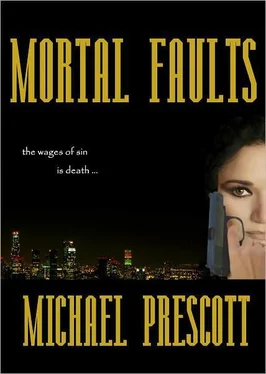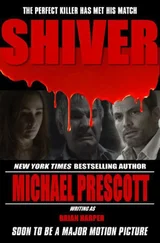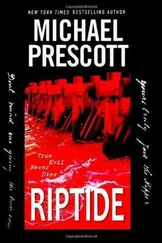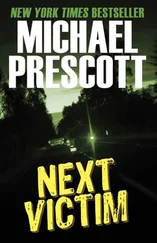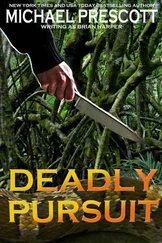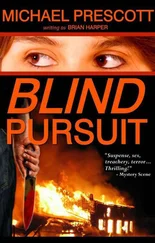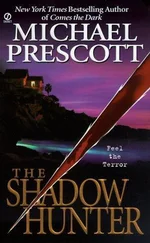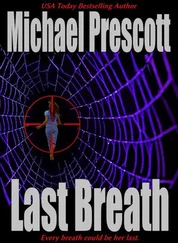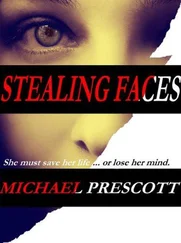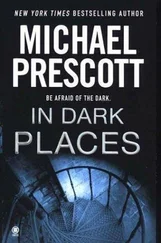Michael Prescott - Mortal Faults
Здесь есть возможность читать онлайн «Michael Prescott - Mortal Faults» весь текст электронной книги совершенно бесплатно (целиком полную версию без сокращений). В некоторых случаях можно слушать аудио, скачать через торрент в формате fb2 и присутствует краткое содержание. Жанр: Триллер, на английском языке. Описание произведения, (предисловие) а так же отзывы посетителей доступны на портале библиотеки ЛибКат.
- Название:Mortal Faults
- Автор:
- Жанр:
- Год:неизвестен
- ISBN:нет данных
- Рейтинг книги:4 / 5. Голосов: 1
-
Избранное:Добавить в избранное
- Отзывы:
-
Ваша оценка:
- 80
- 1
- 2
- 3
- 4
- 5
Mortal Faults: краткое содержание, описание и аннотация
Предлагаем к чтению аннотацию, описание, краткое содержание или предисловие (зависит от того, что написал сам автор книги «Mortal Faults»). Если вы не нашли необходимую информацию о книге — напишите в комментариях, мы постараемся отыскать её.
Mortal Faults — читать онлайн бесплатно полную книгу (весь текст) целиком
Ниже представлен текст книги, разбитый по страницам. Система сохранения места последней прочитанной страницы, позволяет с удобством читать онлайн бесплатно книгу «Mortal Faults», без необходимости каждый раз заново искать на чём Вы остановились. Поставьте закладку, и сможете в любой момент перейти на страницу, на которой закончили чтение.
Интервал:
Закладка:
“Well, if it’s not too much trouble.”
“I have lemonade. Is that all right?”
“That would be fine, thank you.”
Andrea got the pitcher out of the fridge and poured two tall glasses. She was distantly amazed that she could do this. She was entertaining a guest. She was a hostess.
She carried the glasses into the living room and handed one to Abby. They took seats across from each other.
“You have a very nice home,” Abby said.
Andrea doubted she meant it. The house was small and old and stuffy, the curtains were always closed, and there were security bars on the windows. No mementos or knickknacks were on display, no items of a personal nature. She’d lived here for more than a year but had furnished the place with little besides essentials, and most of those had been purchased secondhand.
Andrea asked Abby where she lived. “West L.A.,” Abby said. Andrea knew West L.A. It was miles away, a much pricier area, near enough to the ocean that you could feel the sea breeze.
“I envy you,” Andrea said, and it was true, and not only for living in West Los Angeles. The woman was young and attractive and seemed unburdened by fear and guilt, the two inescapable constants in Andrea’s own life.
They talked for a while, sipping lemonade. Andrea found it remarkable that she could be having a conversation with a stranger off the street. She barely noticed what they talked about. She was aware only of the ebb and flow of words, the casualness of it, the surprising ease. She had thought it would be impossible to talk to anyone, especially here, in her private sanctum. Yet it wasn’t so hard, after all. Perhaps she’d underestimated herself, or overestimated the perils of the world.
“Would you like more lemonade?” she asked when their glasses were empty.
“Thank you, yes. It’s very good.”
This time Abby accompanied her into the kitchen.
“Lived here long?” Abby asked.
“A year or so,” Andrea said, then wondered why the woman would have asked that question.
“Where were you before that?”
“What do you mean?”
“Just, you know, where do you hail from? Everybody in California is from somewhere else. I was raised in Arizona.”
“I was born in Oregon,” Andrea said softly. She took out the pitcher and carried it to the kitchen counter next to the sink.
“That’s a nice part of the country,” Abby said. “Of course, L.A. was probably real nice too, way back when. You know, years ago, before all the traffic and crime.”
Crime. Andrea picked up on the word. Why introduce that subject? “There’s crime everyplace,” she murmured. Her hand moved toward a drawer under the countertop, then shied away.
“We seem to get more than our share. So… you said you’re not married?”
Stiffly, Andrea answered, “No.”
“Me neither. I prefer it that way.”
Andrea began to pour from the pitcher.
“Though I guess,” Abby said, “it would be nice to have children someday.”
Andrea’s hand shook, and she nearly spilled the lemonade.
“I think about it sometimes,” the woman went on. “The old biological clock is ticking, you know.”
Andrea set down the pitcher. “I have no children.” She looked at Abby, looked at her hard.
Abby gazed back, her face open and guileless. “Ever want any?”
“Why would you ask me that?”
“Just wondering.”
“You ask a lot of questions.”
“Making conversation, that’s all.”
“Making inquiries. That’s what you’re doing.” Andrea turned back to the counter, and this time she opened the drawer. She reached inside, and her hand closed over the thing she needed. “Who are you?”
“I already said-”
Andrea turned to face her. “Who are you?”
This time she expected an answer.
Abby considered the gun.
It was aimed at her chest from a distance of four feet, a Colt revolver, a. 38 Special, the Commando model.
She hadn’t expected the gun. It had been careless of her, really. She should have been ready.
“ Who? ” Andrea Lowry asked for the third time.
“I told you,” Abby said slowly. “My name is Abby Bannister. My car ran out of gas-”
“Don’t lie to me. I can’t stand it when they lie to me!”
“Okay.” Abby kept her voice even. “I understand.”
“You don’t understand. Nobody does. Walk a mile in my shoes… You know that expression? You’re too young know it.”
“I know the expression,” Abby said.
“You don’t know anything. Asking questions. Marriage, children… You think you’re so smart.”
“I don’t. Really.” At the moment this was true.
“You’re all alike. You all use the same dirty tricks, and for what? To get a few words you can print? To get a story?”
Reporters. That’s who she was talking about.
“Now admit it.” The gun hadn’t wavered. “Admit who you are. Tell me the truth. Tell me right now.”
“I’ll tell you.” Abby took a breath. “You’re right. I’m a reporter. For a newspaper.”
“I knew it. I always know. Which paper is it, this time?”
“The L.A. Times.”
“You work for them?”
“I’m what they call a stringer. A freelancer.”
“How did you find me?”
Abby formulated a vague but-she hoped-plausible lie. “I was working another story, and your name came up.”
“My name? Why would my name enter into it?”
“I can’t reveal my sources.” It sounded like something a journalist would say.
Andrea gave her a sharp look. “Your sources. Oh, for God’s sake. You act so ethical, and yet you gained admittance to my home under false pretenses. To spy on me. To write one of your damn stories!”
“I was going to tell you-”
“When?”
“When we’d established a rapport.”
The woman snorted, a sudden sharp noise like a gunshot. Abby managed not to jump at the sound.
“Rapport. When you’d gained my trust, you mean. Fooled me into trusting you.”
“I guess so.”
“You people-you disgust me.”
“Could you put down the gun now, please?”
“I ought to shoot you dead, you little bitch.”
“I’m just doing my job.”
“Your job. Your job is to ruin lives. People like you have been after me for twenty years. For twenty years-do you know what that’s like, never to be left alone, never to have any peace?”
“I’m sorry,” Abby said.
“Ought to shoot you in your lying heart,” Andrea hissed, but there was no more passion in her voice, and the gun was lowering. “Your car is fine, of course.”
“Yes.”
“And when you used my phone to call Triple A-”
“I didn’t really make the call. I faked it.”
“You’re quite the actress, aren’t you?”
Abby didn’t answer.
“Get out. Get out of my house.”
“Yes, ma’am.”
“You think I’m a sideshow for your readers’ amusement? You think I’m a freak?”
“No, I don’t.”
“You do. You all do. Well, go and write about me. Go tell them I’m as crazy as they thought. Tell them I’m a psychopath. That’s what you think, isn’t it?”
“I didn’t say that.”
“Get out,” Andrea said again.
Abby got out. She didn’t look back until she was pulling away from the curb. She expected to see Andrea Lowry in the doorway or window, watching her go, but the door was closed, and the curtains remained shut.
Abby released a slow breath. “That went well,” she mumbled.
She’d managed to alienate the woman she was trying to befriend. Not that alienating Andrea Lowry was hard to do. She was afraid of people-reporters in particular. Had they really been after her at some point in her life, or was that just part of some megalomanic drama she was acting out?
Читать дальшеИнтервал:
Закладка:
Похожие книги на «Mortal Faults»
Представляем Вашему вниманию похожие книги на «Mortal Faults» списком для выбора. Мы отобрали схожую по названию и смыслу литературу в надежде предоставить читателям больше вариантов отыскать новые, интересные, ещё непрочитанные произведения.
Обсуждение, отзывы о книге «Mortal Faults» и просто собственные мнения читателей. Оставьте ваши комментарии, напишите, что Вы думаете о произведении, его смысле или главных героях. Укажите что конкретно понравилось, а что нет, и почему Вы так считаете.
